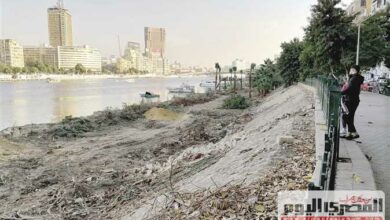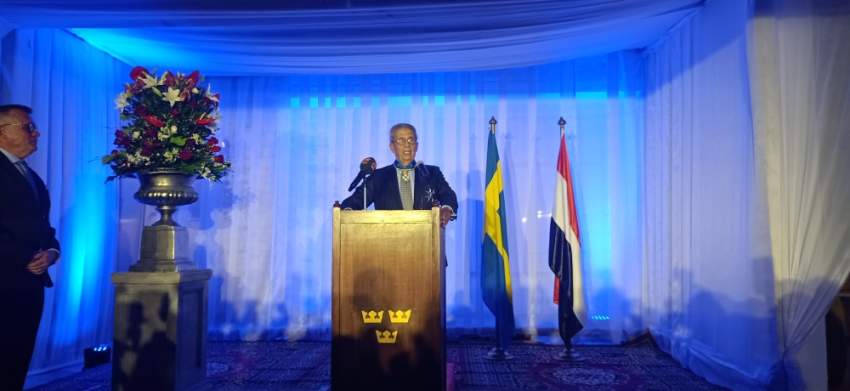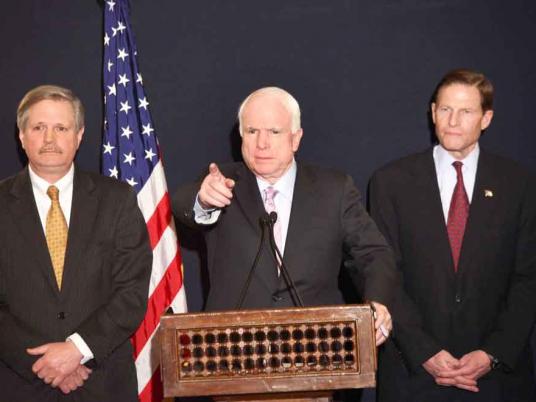A scuffle broke out between supporters and opponents of Amr Moussa during a press conference at the Journalists Syndicate on Tuesday, with critics of the former Arab League secretary general objecting to his inclusion in the membership of the Revolution Protection Council. Those objecting to his inclusion in the body claim that he is too closely connected with the former regime.
The scuffle began as Mohamed Abdel Hafiz came to blows with Committee Head Mamdouh Hamza and Mohamed Fayeq, vice president of the National Council for Human Rights, accusing them of stealing the idea of forming the council from him.
Hafiz was taken away by the conference organizers, while other attendees criticized the inclusion of people they described as being remnants of the former regime, Moussa among them.
Mamdouh Hamza said that members of the council were chosen in accordance with specific regulations and standards, which include the member having been a supporter of the revolution and not having been involved in political or economic corruption.
Critics of Moussa state that he could not have worked so closely with the regime of former President Hosni Mubarak, including serving for a while as foreign minister under Mubarak, without having been at least tangentially involved in corruption.
Fayeq, meanwhile, outlined the role of the new body. “The council will be charged with a number of general and urgent strategic tasks,” he said.
He said these would include “the creation of mechanisms of action in the different areas of building the civil state through the formation of a constitutional and legislative committee composed of legal and constitutional experts to write the new constitution, and an economic committee to formulate a comprehensive development plan.
“We will discuss how the council can participate in decision making, as well as the establishment of an entity that takes care of issues concerning the revolutionaries and starting a dialogue with the media,” he said.
“We will develop a strategy for overall development and its respective sectors and the maintenance of the country's wealth and resources,” said Fayeq, adding that they will also “focus on reducing the gap between domestic production and the consumption of essential crops and products.”
He also said the council would also be involved in developing “a plan to review the sale contracts of public sector companies, loans, grants, local and foreign funds and private accounts since 1995, and in prosecuting those responsible for crimes of corruption and human rights violations.”
Translated from the Arabic Edition




